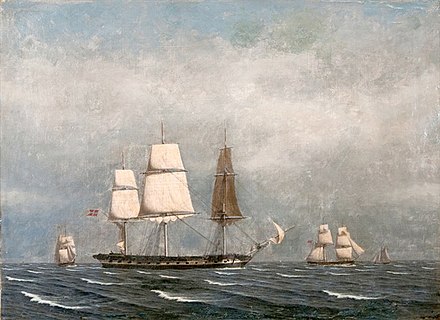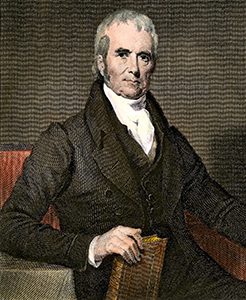On This Day In History
On this day in history, February 27
Feb 27 – Julius Prömmel – Danish frigate – 1832
On February 27, 1804, the Supreme Court, led by Chief Justice John Marshall, found in Little v. Barreme that the Executive Branch does not possess “inherent authority” or “inherent powers” that would permit it to disregard an act of Congress.
The events that culminated in the case, filed in 1801, began when the frigate USS Boston seized a Danish ship named the Flying-Fish for violating the Neutrality Act of 1794. That law prohibited commercial vessels from carrying cargo to nations at war with the U.S., but it did not interdict ships ferrying goods from a hostile power. Nevertheless, the Secretary of the Navy’s orders, on behalf of President Adams, were “to intercept any suspected American ship sailing to or from a French port.” It was under this directive that Captain George Little requisitioned the neutral Danish boat.
In a subsequent court case, Little was found liable for carrying out an illegal order. Appealing the case to the Supreme Court did not exonerate him. Chief Justice John Marshall wrote in the Court’s majority opinion:
“Is the officer who obeys [the President’s order] liable for damages sustained by this misconstruction of the act, or will his orders excuse him? … the instructions cannot change the nature of the transaction or legalize an act which without those instructions would have been a plain trespass.”
Little v. Barreme began to establish the modern U.S. military doctrine that the “superior orders” defense is generally invalid: to follow an unlawful order is almost always itself an illegal act. 2012’s United States v. Jones is the latest refinement of the precedent “that obedience to a superior order is not a defense if the subordinate knows or ought to know it is illegal.”




